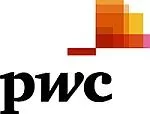Background
On 24 August 2020, the Central Bank of Nigeria (CBN) issued a notice ("the Notice") directing authorised dealers against issuing Form Ms for imports, where payments are not made directly to the ultimate supplier.
In the Notice, the CBN directed that Form Ms for letters of credit, bills for collection and other forms of payment, should not be made available for imports that are done through Buying Houses, agents, procurement hubs, or other similar arrangements (collectively referred to in this Alert as "Buying Agents" or "BA").
The Notice also announced the introduction of a Product Price Verification Mechanism (PPVM), intended to guide the pricing of imports into Nigeria. Authorised dealers will need to verify prices quoted by importers against the PPVM before approving Form Ms.
What is a Form M? The Form M is a document required to initiate and obtain foreign exchange (forex) for imports into Nigeria.
Why do companies use a Buying Agent? While there are valid cases of abuse as identified by the CBN, there are also commercial justification for using a BA which is a common strategy for many businesses and multinational group because:
- It allows groups achieve economies of scale, where one entity procures goods on behalf of other group entities (usually at discounted prices). It also allows individual group members to focus on their core business activities.
- Some suppliers are not able to sell directly to certain buyers. This could be for different reasons such as trade restrictions to sell to a particular country, internal policies, etc. A BA (in a third country) may not have such restrictions, and is therefore able to procure goods on behalf of a "restricted" buyer.
- BA's provide short-term financing by paying suppliers, and obtaining payment from the buyers at later dates. This is essential where the buyer is unable to meet the supplier's payment terms or timing due liquidity and other challenges such as inability to obtain forex.
Analysis
The Notice, dated 24 August 2020 (and effective immediately) was issued as part of the CBN's efforts to curtail the strain on the country's foreign exchange reserve, on the basis that BAs introduce additional layer of costs. The CBN also expects the PPVM to achieve this objective.
Specifically, the CBN highlighted the following reasons for the Notice: "to ensure prudent use of our foreign exchange resources and eliminate incidences of over-invoicing, transfer pricing, double handling charges, and avoidable costs ultimately passed to Nigerian customers".
There are a number of concerns relating to the Notice:
- BAs are often used to achieve bargain pricing by negotiating bulk purchases.
- This may restrict Nigerian importers who are not ordinarily able to transact directly with certain sellers
- It is not clear how to determine a restricted BA. Many commodities are procured from commodity traders who themselves are not the original producers of the goods. An up to date PPVM would provide a more objective basis for implementation.
- Banks and affected customers may need to seek clarity on peculiar circumstances e.g. (i) buyers that demonstrate that the use of a BA results in reduced costs under the PPVM (ii) where it is not possible to import from a country without a BA (iii) if the cost of the item is higher than the PPVM whether forex can be obtained for the verified portion.
Conclusion
The trigger for the new policy is the current economic situation in the country and challenges regarding forex. While implementing the policy, the CBN and banks would need to consider the challenges highlighted above to ensure that customers with legitimate arrangements are not adversely affected.
From a tax perspective, the inability to process the Form M should not make the costs disallowable for tax purposes, subject to transfer pricing rules (if the BA is a related party). There is an established precedent at the Court of Appeal (Stanbic IBTC vs FRCN) that the inability to register a contract for forex purposes does not invalidate the expense.
The content of this article is intended to provide a general guide to the subject matter. Specialist advice should be sought about your specific circumstances.


